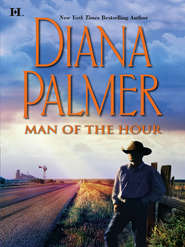По всем вопросам обращайтесь на: info@litportal.ru
(©) 2003-2024.
✖
A Texas Christmas: True Blue / A Lawman's Christmas: A McKettricks of Texas Novel
Автор
Год написания книги
2019
Настройки чтения
Размер шрифта
Высота строк
Поля
“Just think how nice they’ll taste in one of my beef stew recipes,” she coaxed. “Go on, peel.”
“Why can’t we just get one of those things that sucks the air out of bags and freeze them instead?”
“What if we have a major power outage that lasts for days and days?” she returned.
He thought for a minute. “I’ll go buy twenty bags of ice and several of those foam coolers.”
She laughed. “Yes, but we can’t tell how the power grid is going to cope if we have one of those massive CMEs like the Carrington Event in 1859.”
He blinked. “Excuse me?”
“There was a massive coronal mass ejection in 1859 called the Carrington Event,” she explained. “When it hit earth, all the electrics on the planet went crazy. Telegraph lines burned up and telegraph units caught fire.” She glanced at him. “There wasn’t much electricity back in those days—it was in its infancy. But imagine if such a thing happened today, with our dependence on electricity. Everything is connected to the grid these days, banks, communications corporations, pharmacies, government, military and the list goes on and on. Even our water and power are controlled by computers. Just imagine if we had no way to access our computers.”
He whistled. “I was in the grocery store one day when the computers went offline. They couldn’t process credit cards. Most people had to leave. I had enough cash for bread and milk. Then another time the computers in the pharmacy went down, when you had to have those antibiotics for the sinus infection last winter. I had to come home and get the checkbook and go back. People without credit cards had real problems.”
“See?” She went back to her tomatoes.
“I suppose it would be a pretty bad thing. Is it going to happen, you think?”
“Someday, certainly. The sun has eleven year cycles, you know, with a solar minimum and a solar maximum. The next solar maximum, some scientists say, is in 2012. If we’re going to get hit, that would have my vote for the timeline.”
“Twenty-twelve,” he groaned, rolling his eyes. “We had this guy come in the office and tell us we needed to put out a flyer.”
“What about?”
“The fact that the world is ending in 2012 and we have to have tin-foil hats to protect us from electromagnetic pulses.”
“Ah. EMPs,” she said knowledgeably. “Actually, I think you’d have to be in a modified and greatly enlarged version of a Leiden jar to be fully protected. So would any computer equipment you wanted to save.” She glanced at him. “They’re developing weapons like that, you know,” she added. “All it would take is one nicely placed EMP and our military computers would go down like tenpins.”
He put down the knife. “Where do you learn all this stuff?” he asked, exasperated.
“On the internet.” She pulled an iPod out of her pocket and showed it to him. “I have Wi-Fi in the house, you know. I just connect to all the appropriate websites.” She checked her bookmarks. “I have one for space weather, three radars for terrestrial weather and about ten covert sites that tell you all the stuff the government won’t tell you …”
“My mother, the conspiracy theorist,” he moaned.
“You won’t hear this stuff on the national news,” she said smartly. “The mainstream media is controlled by three major corporations. They decide what you’ll get to hear. And mostly it’s what entertainer got drunk, what television show is getting the ratings and what politician is patting himself on the back or running for reelection. In my day—” she warmed to her theme “—we had real news on television. It was local and we had real reporters out gathering it. Like the Jacobsville paper still does,” she added.
“I know about the Jacobsville paper,” he said with a sigh. “We hear that Cash Grier spends most of his time trying to protect the owner from getting assassinated. She knows all the drug distribution points and the drug lords by name, and she’s printing them.” He shook his head. “She’s going to be another statistic one day. They’ve killed plenty of newspaper publishers and reporters over the border for less. She’s rocking the boat.”
“Somebody needs to rock it,” Barbara muttered as she peeled another tomato skin off and tossed it into a green bag to be used for mulch in her garden. She never wasted any organic refuse. “People are dying so that another generation can become addicted to drugs.”
“I can’t argue that point,” he said. “The problem is that nothing law enforcement is doing is making much of a dent in drug trafficking. If there’s a market, there’s going to be a supply. That’s just the way things are.”
“They say Hayes Carson actually talked to Minette Raynor about it.”
That was real news. Minette owned the Jacobsville Times. She had two stepsiblings, Shane, who was twelve, and Julie, who was six. She’d loved her stepmother very much. Her stepmother and her father had died within weeks of each other, leaving a grieving Minette with two little children to raise, a newspaper to run and a ranch to manage. She had a manager to handle the ranch, and her great-aunt Sarah lived with her and took care of the kids after school so that Minette could keep working. Minette was twenty-five now and unmarried. She and Hayes Carson didn’t get along. Hayes blamed her, God knew why, for his younger brother’s drug-related death, even after Rachel Conley left a confession stating that she’d given Bobby Carson, Hayes’s brother, the drugs that killed him.
Rick chuckled. “If there’s ever a border war, Minette will stand in the street pointing a finger at Hayes so the invaders can get him first.”
“I wonder,” Barbara mused. “Sometimes I think where there’s antagonism, there’s also something deeper. I’ve seen people who hate each other end up married.”
“Cash Grier and his Tippy,” Rick mused.
“Yes, and Stuart York and Ivy Conley.”
“Not to mention half a dozen others. Jacobsville is growing by leaps and bounds.”
“So is Comanche Wells. We’ve got new people there, too.” She was peeling faster. “Did you notice that Grange bought a ranch in Comanche Wells, next to the property that his boss owns?”
Rick pursed his sensual lips. “Which boss?”
She blinked at him. “What do you mean, which boss?”
“He works as ranch manager for Jason Pendleton. But he also works on the side for Eb Scott,” he said. “You didn’t hear this from me, but he was involved in the Pendleton kidnapping,” he added. “He went to get Gracie Pendleton back when she was kidnapped by that exiled South American dictator, Emilio Machado.”
“Machado.”
“Yes.” He peeled the tomato slowly. “He’s a conundrum.”
“What do you mean?”
“He started out, we learned, as a farm laborer down in Mexico, from the time he was about ten years old. He was involved in protests against foreign interests even as a teenager. But he got tired of scratching dirt for a living. He could play the guitar and sing, so he worked bars for a while and then through a contact, he got a job as an entertainer on a cruise ship. That got boring. He signed on with a bunch of mercs and became known internationally as a crusader against oppression. Afterward, he went to South America and hired on with another paramilitary group that was fighting to preserve the way of life of the native people in Barrera, a little nation in the Amazon bordering Peru. He helped the paramilitary unit free a tribe of natives from a foreign corporation that was trying to kill them to get the oil-rich land on which they were living. He developed a taste for defending the underdog, moved up in the ranks of the military until he became a general.” He smiled. “It seems that he was a natural leader, because when the small country’s president died four years ago, Machado was elected by acclamation.” He glanced at her. “Do you realize how rare that is, even for a small nation?”
“If people loved him so much, how is it that he’s in Mexico kidnapping people to get money to retake his country?”
“He wasn’t ousted by the people, but by a vicious and bloodthirsty military subordinate who knew when and how to strike, while Machado was on a trip to a neighboring country to sign a trade agreement and offer an alliance against foreign corporate takeovers.”
“I didn’t know that.”
“It’s sort of privileged info, so you can’t share it,” he told her. “Anyway, the subordinate killed Machado’s entire staff, and sent his secret police to shut down newspapers and television and radio stations. Overnight, influential people ended up in prison. Educators, politicians, writers—anyone who might threaten the new regime. There have been hundreds of murders, and now the subordinate, Pedro Mendez by name, is allying himself with drug lords in a neighboring country. It seems that cocaine grows quite nicely in Barrera and poor farmers are being ‘encouraged’ to grow it instead of food crops on their land. Mendez is also nationalizing every single business so that he has absolute control.”
“No wonder the general is trying to retake his country,” she said curtly. “I hope he makes it.”
“So do I,” Rick replied. “But I can’t say that in public,” he added. “He’s wanted in this country for kidnapping. It’s a capital offense. If he’s caught and convicted he could wind up with a death penalty.”
She winced. “I don’t condone how he’s getting the money,” she replied. “But he’s going to use it for a noble reason.”
“Noble.” He chuckled.
“That’s not funny,” she said shortly.
“I’m not laughing at the word. It’s Gwen. She goes around mumbling that she’s Don Quixote.”
She laughed out loud. “What?”
He shook his head. “Rogers told me. It seems that our newest detective won’t give out on dates and she groups herself with Don Quixote, who tried to restore honor and morality to a decadent world.”
“My, my!” She pursed her lips and smiled secretively.











